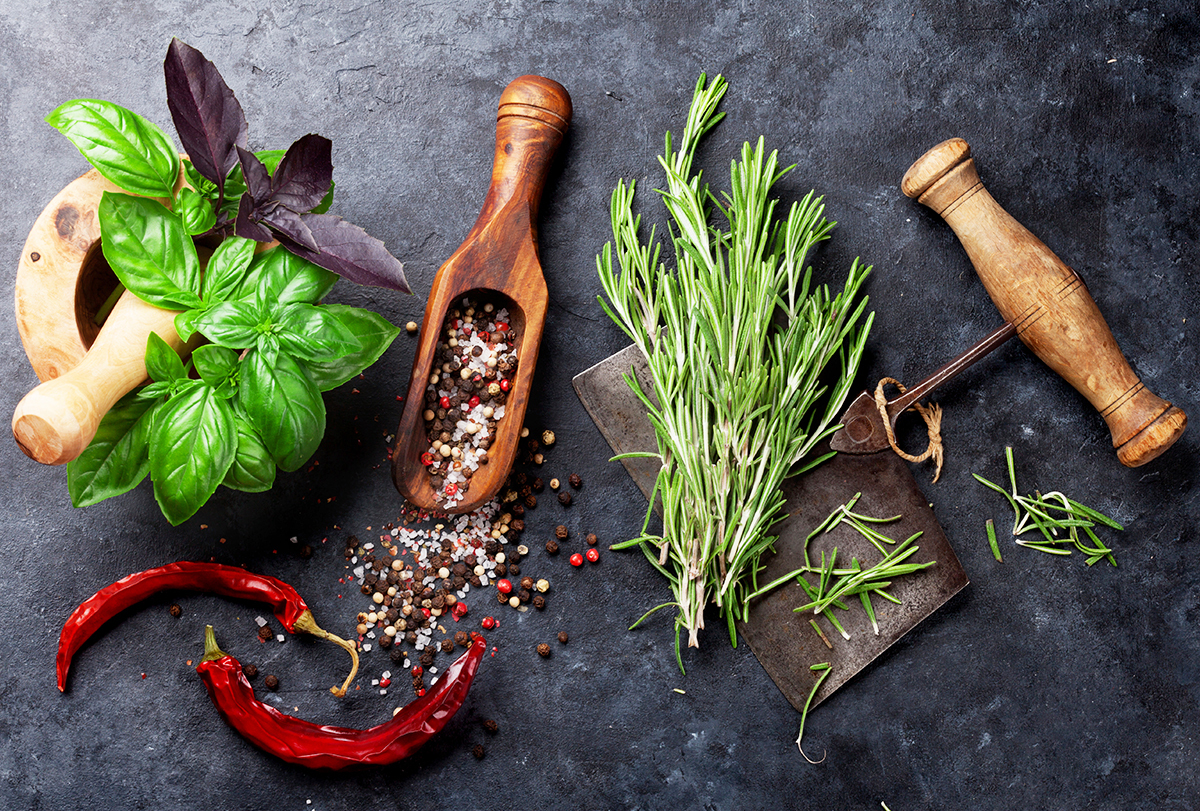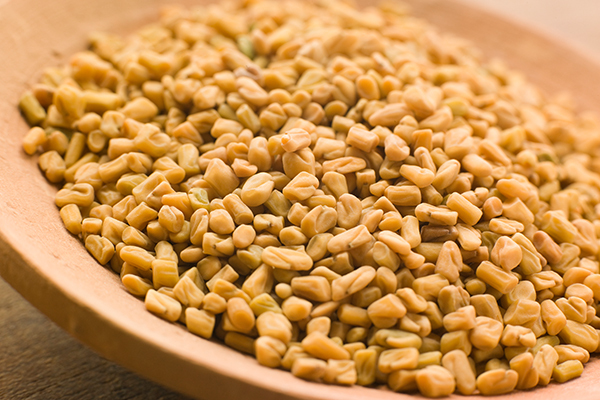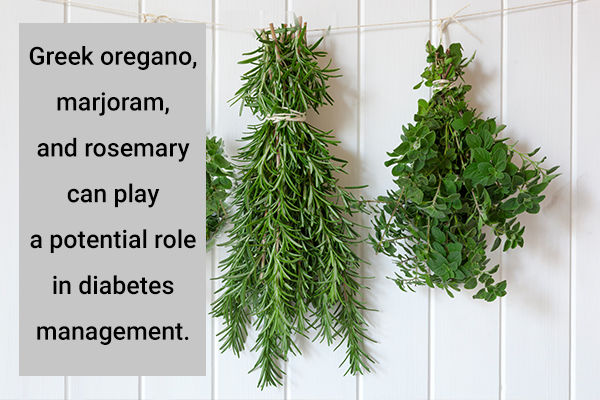Diabetes mellitus is a metabolic condition that has multiple categories. Various approaches can be taken to help treat diabetes or hyperglycemia.

Some studies have shown the role of plants in improving blood glucose levels and providing other medicinal properties such as lowering high cholesterol and improving insulin secretion and kidney function. (1)
The fruit, seed, leaf, flower, bark, and root of some plants can all be used for medicinal purposes. (2) This article focuses on 10 such herbs and spices that can help manage diabetes.
Diabetes occurs when either the beta-cells in the pancreas are damaged and are unable to release insulin (type 1) or the pancreas is able to release insulin but the body does not respond normally to it (type 2).
In both cases of diabetes, hyperglycemia or high blood sugar is present. (3) Therefore, the two common types of diabetes are insulin-dependent type 1 diabetes and insulin resistance type 2 diabetes. Gestational diabetes can also occur during pregnancy.
Note: Since hyperglycemia can further complicate diabetes and lead to other conditions such as kidney failure, it is recommended that a person with diabetes monitor their blood sugar levels frequently.
Herbs and Spices That Help in Diabetes Management
Many lifestyle modifications can help a person with diabetes when it comes to controlling their sugar levels. These modifications include consuming nutritious foods (4) and adopting diets such as the Mediterranean diet and the DASH diet. (5)
Different herbs have also been used for the treatment of diabetes depending on the disease progression and related complications in the patient. (2)
The most commonly used herbs and spices are as follows.
1. Cinnamon

Cinnamon can be beneficial for someone with both diabetes and hypertension. (6) This spice has been shown to reduce carbohydrate digestion, reduce hyperglycemia, and increase sensitivity to insulin. (7)
You can make a diabetes-friendly meal using plain oatmeal, fresh berries, and cinnamon. The high fiber content of this meal helps lower sugar absorption, thus preventing a blood sugar spike as an added benefit.
2. Aloe vera
Aloe vera extract has been shown to increase insulin sensitivity and, in prediabetic patients, decrease HbA1C levels. In one study, consuming aloe vera capsules or juice resulted in the reduction of blood glucose levels. (1)
3. Basil
Basil has been used as an antidiabetic agent for long. It is thought to help limit glucose absorption by acting on carbohydrate-metabolizing enzymes. It also helps stimulate hepatic glucose metabolization. (8)
4. Ginger
Ginger has been shown to improve insulin sensitivity, blood lipid profile, and glucose control. Therefore, it can be used as a safe adjuvant therapy for type 2 diabetes. (9)
5. Fenugreek

The use of fenugreek powder can help lower blood glucose levels and delay the onset of diabetes in prediabetic patients. It also offers hypocholesterolemic effects, lowers LDL levels, and helps increase serum insulin. (10)
ALSO READ: What Are the Health Benefits of Fenugreek and How to Maximize Them?
6. Cumin
Cumin is observed to help improve serum insulin levels and increase insulin sensitivity. (11)
ALSO READ: Why Is Cumin Good for Health
7. Curcumin
One study showed the beneficial effects that curcumin has on beta-cells in relation to HbA1C (a diabetes marker), fasting plasma glucose (FPG), and oral glucose tolerance test (OGTT) in prediabetic patients. (6)
8. Dill
Dill possesses antihyperlipidemic, antihypercholesterolemic, and antidiabetic effects. The consumption of dill can help lower diabetes risk. However, further evaluation is required to establish its dosage and safety. (12)
9. Fennel
Animal studies have shown a hypoglycemic effect of fennel essential oils. (13) Moreover, it can help increase glucose consumption in adipocytes and increase serum insulin. (7)
ALSO READ: The Health Benefits of Fennel Seeds
10. Origanum species

Greek oregano, marjoram, and rosemary are rich in flavonoids that affect the enzymes involved in insulin secretion and signaling, thus playing a potential role in diabetes management. (14)(15)
Caution: If choosing to include herbs in the form of supplementation, it is important to speak with your physician, especially if pregnant or breastfeeding.
If you are diagnosed with gestational diabetes, some of the spices mentioned (fenugreek and ginger), as well as other herbs, should be taken with caution due to possible complications for both the mother and fetus. (16)
Final Word
Diabetes is a global public health concern. Lifestyle choices and early intervention can help decrease the onset of this disease and prevent further complications.
Certain plants possess medicinal properties that help manage sugar levels in diabetics. However, herbs or spices should not be substitutes for medications, and it is always recommended to work with both your physician and registered dietitian to develop an appropriate plan for you and your health condition.
- Was this article helpful?
- YES, THANKS!NOT REALLY


